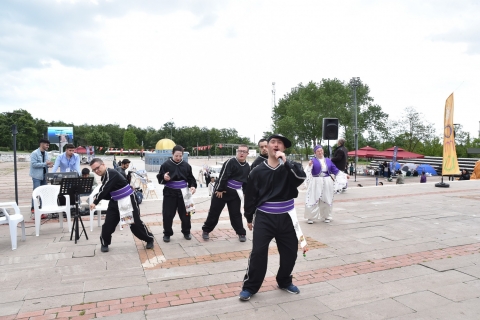OMU strengthens faculty capacity with “Inclusivity in Higher Education” training program
The Ondokuz Mayıs University (OMU) Disability Student Unit Sub-Working Group organized a two-day program titled “Inclusivity in Higher Education: Training of Trainers” for academic unit coordinators. The training aimed to enhance knowledge and awareness of implementing inclusive education approaches in higher education environments.
The training aimed to enhance knowledge and awareness of implementing inclusive education approaches in higher education environments.
Prof. Dr. Alper Kesten: “Inclusive education provides a strong learning foundation for all students”
Opening the program, Vice Rector and Chair of the Disability Student Unit Executive Board Prof. Dr. Alper Kesten emphasized the significance of inclusivity in education:
“An inclusive learning environment seeks to understand the diversity of students in the classroom and to ensure that they can learn without needing any specific ‘accommodation’ request. When teaching processes are structured in alignment with inclusivity and universal design principles, this benefits not only students with disabilities but all students. It also supports disadvantaged student groups who may be underrepresented or require additional support.”
Comprehensive sessions delivered by expert academics
Following an overview of the unit’s activities by Disability Student Unit Academic Coordinator Assoc. Prof. Dr. Meryem Vural Batık, the first session was conducted by Coordinator Lecturer Dr. Uygar Bayrakdar, who addressed “Changing Paradigms on Disability and Inclusive Education.”
Additional sessions in the program included both theoretical and applied content:
• Research Assistant Dr. Ayşenur Çelik Şahin: “Accessibility in Higher Education”
• Research Assistant Dr. Osman Çolaklıoğlu: “Instructional Accommodations in Higher Education”
• Lecturer Emrah Altun: “Technological Accommodations in Higher Education”
The two-day training concluded with a panel featuring student representatives from the OMU Disability Student Unit. During the panel, students shared insights on university life, accessibility, needs, and potential solutions.
The training program aimed to develop faculty members’ knowledge, attitudes, and awareness regarding inclusive educational approaches, and to strengthen their competence in structuring instructional processes in line with universal design principles.



















